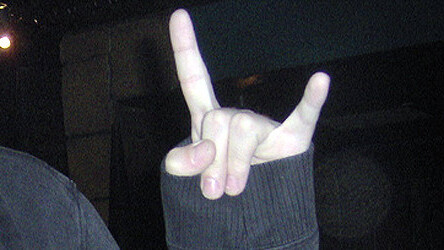
As we’ve just reported, The Echo Nest has today announced a whopping $17.3m funding round to strengthen its position in the field of big data for music.
By way of demonstration of its dataset’s power, the music intelligence company has released details of a study into how closely our music taste matches our political views.
Politics and music have walked hand in hand from time immemorial. Everything from protest songs of varying degrees of subtlety to music that has been appropriated for political means. But other than the blindingly obvious tracks that carry a political message, what does your choice in music reveal about your political leanings?
The Echo Nest co-founder Brian Whitman did some digging to find some surprising results. “We’ve been collecting this data for a while now and started looking into what correlations exist between music, psychographics, demographics and other media preferences,” he says on the company blog.

The research is based on the “Taste Profiles”, The Echo Nest’s server-side representation of everything a listener does with music. The data are anonymised but there are some clear indicators of habit and direction it seems and Whitman and co took a look at political tastes as the US heads into election mode.
Though there were no doubt swathes of data to work through, the study took in listeners who self reported as either “Democrat-aligned” or “Republican-aligned” and are living in the US.
The political alignment was automatically derived from annotations of political figures or parties. Whitman explains, “We grouped prominent political figures such as Bill or Hillary Clinton, Barack Obama, John Kerry and so on as Democrat alignment, in addition to specific party affiliations. Likewise for Republicans: George Bush, Mitt Romney, John McCain, Sarah Palin, and so on. If someone listed both, or had conflicting affiliations, we did not include them in this experiment – nor did we consider any other party or country.”
Rock the vote?
Picking out a political affiliation from musical data is not as easy it seems. According to Whitman, a leaning toward the Democratic party is harder to nail down. But, all was not lost as Whitman explains, “I had a theory: Republicans might listen to fewer kinds of music. If most of the class you are trying to predict stays within a narrow range of music types, they’re easier to spot. Conversely, if the class you’re predicting is all over the musical map, it becomes harder to make accurate predictions. And the data shows it: If we add up the occurrences of each musical term associated with each person and then plot the histogram counts in descending order, we see a clear difference in both the magnitude and distribution of musical types for the two political affiliations.”
Whitman was right it seems. There was less in the way of variation in musical types for Republicans as the data showed a small set of top ranking terms. The Democrat data in comparison indicated more types of music.

Some neat take aways from the study over all include – ‘Republicans seem to have less diverse music taste than Democrats, Kenny Chesney fans are most likely to swing right, Rhianna fans left and metal fans could save us all from a two-party system.’ Rock and roll.
Political poll predictions via music might seem a bit cloudy and we doubt that the next election will be based on the listening habits of Rhianna fans, but it is really interesting to see how data can be evaluated in ways that reveal these kinds of surprises.
So, will The Echo Nest be chasing Gallup and Ipsos for a piece of their action? Probably not as Whitman points out, “The Echo Nest is not going to quit our day jobs to become pollsters. But it’s fascinating how much information about you is sitting inside your musical tastes, and we also appreciate how we can use these experiments to tune our models to make your listening experience better on everything we power. We have a lot more ideas around this angle. Stay tuned to this blog for more experiments, and please let me know if you have any great ideas for what predictors we should look at next.”
That sounds cool to us, by looking closely at data that is now available through services like The Echo Nest we can really start to test assumptions about music fans. So, are goths all owners of cats? Do house music fans identify with characters in film? There’s a lot of questions for enquiring minds to put to the test with big data.
Image Credit: Rileyroxx
Get the TNW newsletter
Get the most important tech news in your inbox each week.




